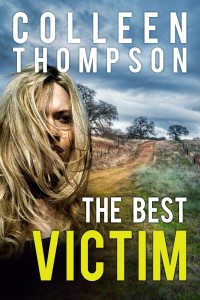Keep ‘em Coming Back For More
First published in The Romance Writer’s Report, Feb. 2007 Issue
We’ve all read them: endings that have left us with a sigh, a feeling of completion, and a firm determination to read more of an author’s work. These are the books we pass on to our sisters, recommend to our friends, and reread when we’re feeling down. Unfortunately, at least as often, we are confronted by endings that fall flat after a promising beginning. From the implausible to the incomplete, they leave us with a vague feeling of dissatisfaction. So how can a writer be certain she has crafted a conclusion that will keep readers satisfied enough to look for her next novel? I asked a number of authors and readers to share their thoughts.
THE EMOTIONAL PAY-OFF
Readers pick up different types of novels with different expectations. Romance aficionados will travel through the twists and turns of the main characters’ travails, but at the end of the day, they long for the emotional pay-off of a happy ending, confirmation that as tough as life gets, the loving relationships we forge make our struggles worthwhile. Psychologically, the vicarious rewards received through our characters act as a release valve for the readers’ stresses and make them eager to repeat what is perceived as a pleasurable experience. In contrast to riskier release-valve activities, such as gambling, the romance offers a sure pay-off, a guarantee underscored when a favorite author’s name appears on the book’s spine.
Though romance is often disparaged for what are called its “formulaic” endings, it’s not the only genre where reader expectations come into play. Says Sandra K. Moore, author of Dead Reckoning (Silhouette Bombshell, July 2006), “Ever read a mystery where the killer didn’t get caught? Or a thriller where the psycho didn’t come to some sort of justice? Or an adventure novel where the protagonist didn’t bring down the rogue government/find the treasure/save the girl? In most cases, the readers admit to wanting things to turn out ‘right,’ which in our case is, after all, the happily ever after.”
Another emotional reward our readers look for is that of universal justice. In the real world, good people aren’t always rewarded and the bad sometimes get away — or even prosper. The unfairness of this weighs heavily on many, so they turn to fiction looking for a better-ordered world. JoAnn Ross, author of No Safe Place (Pocket, March 2007), puts it this way, “I want tyrants toppled, justice to prevail, lovers united, the wicked punished, and the good to live happily ever after. Give me that, and I’m a happy reader.”
Mary Reed McCall, author of The Templar’s Seduction (Avon, June 2007) added another important component of the successful novel’s emotional completion. “Truly powerful endings for me usually have a redemptive element to them – not the concept of ‘groveling’, as I don’t usually favor books with cruelly alpha heroes in need of it, but with the idea of the hero or heroine, or both, being able to move, somehow, beyond the past and whatever has hampered or hurt them for so long.”
QUESTIONS ANSWERED
While in some types of fiction ambiguous endings are highly regarded, most genre readers have different expectations. “For me,” says one reader who identified herself online as kkiker of South Carolina, “the ending has to satisfy all of the questions/problems of the book.” The only exceptions she noted are in books written in an exceptionally strong voice, where “I know there is going to be a series in which they [the protagonists] eventually do have a happily every after.”
Readers often cite dropped threads, where an author fails to satisfy the reader’s curiosity on some point, as major factors in an unsatisfying story. The more successful the author has been at making the reader care about that particular problem, the more the absence of resolution troubles those who have become emotionally invested.
Some of the questions authors raise to keep readers turning the pages are overt, such as those related to the identity of a hidden villain or whether the protagonists achieve their goal. Other issues, however, are implicit and related to the characterization. For instance, if the author has developed an uber-Alpha, take-no-prisoners hero, how will he believably change enough to sustain a long-term, loving relationship with the heroine?
As Zoe Archer, author of Love in a Bottle (Leisure, Nov. 2006) writes, “There are often couples whose courtship and relationship is so tumultuous throughout the novel, that, regardless of their avowals of undying love, I seriously doubt the emotional health of their relationship.”
Many readers and authors polled mentioned that the too-abrupt transformation of characters within the last few pages overcomes the willing suspension of disbelief. As Rowena Cherry, author of Insufficient Mating Material (Love Spell, Feb. 2007) puts it, “If the ending seems rushed, or too-convenient or contrived, or unoriginal, then I feel vaguely cheated. Instead of being delightfully caught up in the romance, I find myself wondering whether the author lost interest in her own story.”
A fine balance is required, however, between enough development in an ending and the feeling that the author has gone overboard. This brings us to the next point…
TO EPILOGUE OR NOT TO EPILOGUE?
Many romance readers and authors I polled absolutely love an epilogue showing a glimpse of the protagonists’ shared future. For Jennifer Ashley, author of The Mad, Bad Duke (Leisure, Dec. 2006), the epilogue is the “show” that follows the “tell” of the preceding chapter’s romantic resolution. “I like seeing the future with the couple and knowing they’re still together and everything’s fine,” Ashley writes. “Of course with a good ending we already know that, but I like to see for myself.”
Not everyone agrees, however. As Nell Dixon, author of Things to Do (Samhain, Oct. 2006), puts it, “In general I like to feel the ending has satisfied all of my questions and left me to imagine the future for myself.”
Most would agree, however, that a poorly-handled epilogue can detract from the book. Long, drawn-out family reunion or wedding scenes can be anticlimactic if no tension remains to pull the reader forward. Merry Cutler, of Annie’s Book Stop in Sharon, Massachusetts, wrote, “I do hate the ones where the heroine is now a great-granny, telling her descendants of her one great love (who is now dead).” Apparently, allusions to the characters’ dotage or death spoils the fun of imagining their further adventures — and can definitely hammer nails in the coffin of a possible sequel or series.
THE “INEVITABLE SURPRISE”
Victorian Bylin, author of Midnight Marriage (Harlequin Historicals, Jan. 2006), says, “A great ending has what I call an ‘inevitable surprise.’ This occurs when something unexpected happens, yet it fits so perfectly I say, “Of course. The story couldn’t have ended any other way.”
To provide the reader with such a feeling, the author must carefully plant clues throughout the story that foreshadow the resolution. If a surprise comes out of the blue, with no such hints, the reader may feel cheated that he/she was not allowed the chance to “play along” and guess the outcome.
Readers also feel let down if the ending is too predictable. To determine whether clues planted throughout the story make it too easy for a reader to foresee the ending, it’s a good idea to draft several experienced readers with no knowledge of earlier versions or the synopsis to review the story before it is submitted.
Though a pitch-perfect conclusion is important, Vivi Anna, author of Blood Secrets (Nocturne, Mar. 2007), reminds us that this is only one facet of the full reading experience. “The ending,” she writes, “isn’t what gets me to run out and buy more of the author. I need the whole story to be powerful, and the writing sharp and fast-paced.” That said, any author who closely evaluates the emotional pay-off, resolution of major questions, epilogue choices, and foreshadowing that come into play at the story’s conclusion can greatly increase her chances of leaving readers with a strong, positive impression that may translate into an ever-increasing fan base eager to keep coming back for more.
Checklist for “Keep ‘Em Coming Back for More”
Does the ending of my manuscript:
- Leave the reader with a strong feeling of emotional well-being?
- Offer a sense of closure?
- Resolve the major story questions to the reader’s satisfaction?
- Offer enough of a sense of completion not to leave the reader frustrated by any issues remaining to be resolved in sequels?
- Give a glimpse of the protagonists’ future happiness through a clear indication of permanent, believable character growth and/or an epilogue set in the near future?
For reprint permissions, please contact Colleen via her “Contact” page in the menu.


